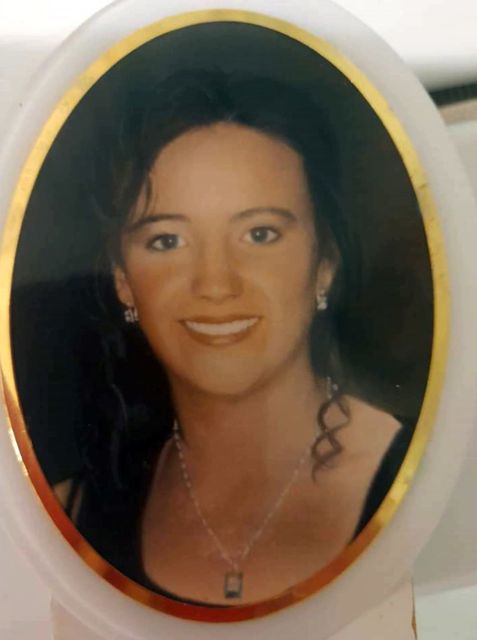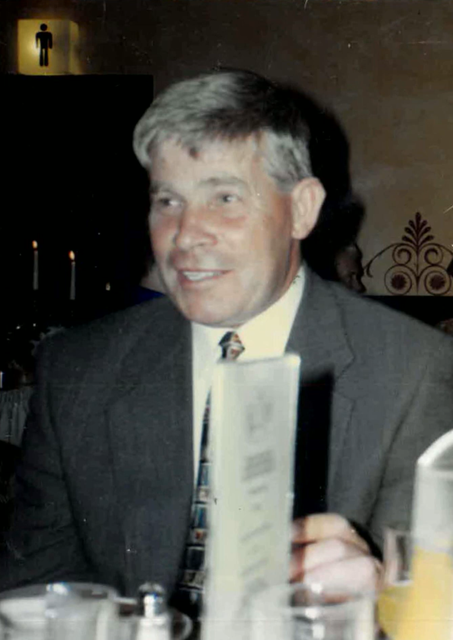The Omagh bombing denied its victims the opportunity to fulfil their potential and meet new generations of their families, an inquiry has been told.
The assertion came during the second week of commemorative hearings for the victims at the Omagh Bombing Inquiry.
Twenty-nine people, including a woman pregnant with twins, died in the Real IRA attack on August 15 1998.
The inquiry is examining whether the bombing could reasonably have been prevented by the security forces.
Jolene Marlow, 17, was described as an ‘exemplary student’ (Omagh Bombing Inquiry)
Commemorative and personal statement hearings will continue over the next two weeks.
The inquiry heard statements from the families of Brenda Logue and Jolene Marlow, both 17-year-old girls killed in the attack, together with 54-year-old Brian McCrory.
In a statement read out on behalf of Jolene’s mother Bridie, the inquiry was told of the teenager’s strong academic and sporting abilities.
Jolene had a younger sister and three younger brothers and had begun driving lessons shortly before her death. She was described as a “very popular member of staff” in her summer job, and an “exemplary student”.
Her mother’s statement said: “I can remember feeling so emotional on the evening of her leaving mass, I couldn’t help but think our eldest child was now ready to start the next chapter in her education and life, only now she would be doing it in Belfast.
“We always secretly dreaded the thought of Jolene being in Belfast in case the Troubles would flare up.
“Little did we know then that our home town of Omagh, where Jolene had attended school, had a part-time job, was learning to drive, socialised and shopped, would be the actual place where she would be denied all of her hopes and dreams, of her bright future.”
Brenda Logue’s unfulfilled potential as a strong leader and natural Gaelic football goalkeeper was also spoken about during the commemorative statements.
Reading a statement on behalf of his mother, Brenda’s brother Cathal Logue said the bombing caused “irreversible emotional damage” to the family.
Mary Logue, who had relayed her words to her sons while being treated for cancer before her death in November last year, said Brenda “would know what to do, what to say, how to comfort my boys”.
“She could be their mother figure when I go,” she said.
“We tried to make it through the motions of the shock, the sheer darkness of depression, the rage and anger, the consistent grief.
“It would come in waves. Some days you could keep your head above water, other days you were drowning.
Brian McCrory was described as a ‘good, decent and hardworking’ man (Family handout/PA)
“Each of my boys fell apart in different ways, struggling to cope, and I was no help, because I was falling apart myself.”
Mr McCrory, a former fireman, was remembered as a “gentle giant”, “loving husband” and “amazing” father-of-three.
In a statement read out on behalf of his daughter Louise, the inquiry heard that Mr McCrory was a “good, decent and hardworking” man.
“He had a strong faith and was dedicated to his family. He had a kindness and a gentle spirit that anyone who knew him experienced, and a beautiful, warm, open smile that made you feel comfortable and safe,” the statement read.
“We are so very lucky to have had the chance to share our lives with someone so very special, and we should have been given much longer to experience and share our lives with this unassuming, good-natured, quiet and much-loved man.”
Mr McCrory’s daughter said she and her siblings had missed out on the opportunity of a growing relationship with their father as they became adults, adding that he never got to meet their partners.
She said they had each visited their father’s graveside on their wedding days.
“As a family, instead, our family events are overshadowed by an immeasurable loss and always a constant awareness of our missing husband, father and friend – our gentle giant,” she said.
She added that it was “heartbreaking” he had never had the chance to enjoy life with his own grandchildren.
The inquiry continues on Thursday.

